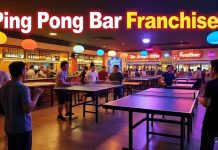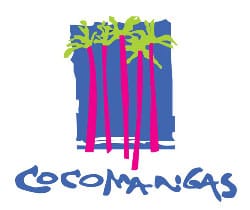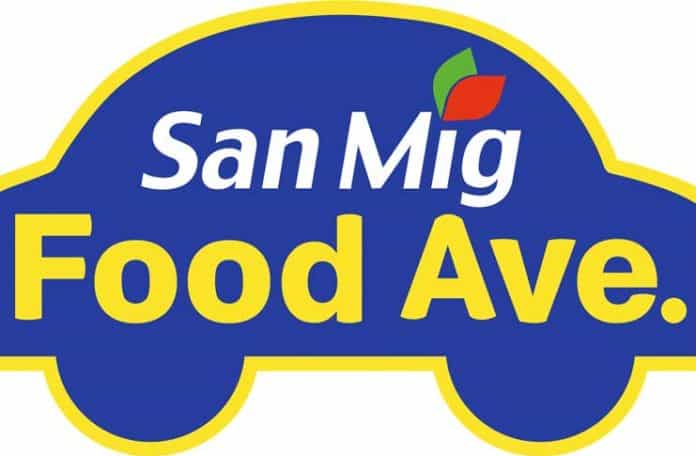
Looking to be a proud owner of a convenience store? In the past we wrote about opening a Family Mart Franchise and a MiniStop Franchise. Today we will cover the San Mig Food Ave Franchise, and how it came to life. We’ll also try to delve a bit deeper into what are the advantages and disadvantages of owning a convenience store.
What is the San Mig Food Ave Franchise?
Well, in a very short answer: San Mig Food Ave (or Avenue) actually began as Petron Treats – the convenience store at the Petron Gas stations. However in 2010, the San Miguel Corporation, which by the way is the largest corporation in the Philippines (in terms of revenue. See more details about the group below), acquired Petron Corporation. This meant the transfer of all the Petron assets under the management of San Miguel, including changes in names of brands. So, Petron Treats was transformed into San Mig Food Shop at first, and later on was changed again to San Mig Food Avenue, which has evolved into a very lucrative Franchise opportunity for many investors.
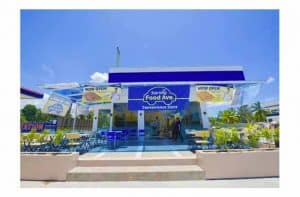 Before we go into the gritty details of the San Mig Food Ave Franchise – I’d like to give you a bit of a background about the convenience store business, why are they popular? What are the advantages of a convenience store? And what are the disadvantages?
Before we go into the gritty details of the San Mig Food Ave Franchise – I’d like to give you a bit of a background about the convenience store business, why are they popular? What are the advantages of a convenience store? And what are the disadvantages?
The Advantages and Disadvantages of Owning a Convenience Store
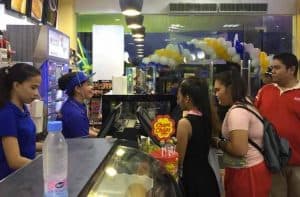 Filipinos love convenience stores. I see 7/11’s, Ministops and Family Marts packed with customers at almost every location I visit, and at almost every hour of the day. Why? Because convenience stores offer all sorts of food (at affordable prices) and a wide range of other essential supplies that can help us get through our day. However, are convenience stores a good business to invest in? Here is our list of pros and cons of owning a convenience store.
Filipinos love convenience stores. I see 7/11’s, Ministops and Family Marts packed with customers at almost every location I visit, and at almost every hour of the day. Why? Because convenience stores offer all sorts of food (at affordable prices) and a wide range of other essential supplies that can help us get through our day. However, are convenience stores a good business to invest in? Here is our list of pros and cons of owning a convenience store.
Pros of Owning a Convenience Store
1. Everyone Needs You
If you open a convenience store in a good location, you will most probably become one of the neighborhoods prime “Destinations”. Everyone needs stuff like cheap food or snacks, drinks, prepaid call cards, toilet paper, pads, soap, as well as cigarettes (for some of us). If everyone needs these stuff, they will need your store. Convenience stores are a central source for practically everyone’s daily needs for quick, one-stop shopping. We’ve learned to rely on these stores to be there for us, whenever we need them. The nice thing about this is that store owners don’t need to invest much on marketing to attract customers, since you have a natural location-based client base. Of course some in-store marketing (as well as social media, etc) is essential and shouldn’t be neglected these days.
2. Stable Income
Even when times are bad and the economy is in a downturn, people always need food or snacks, drinks, prepaid call cards, toilet paper, pads, soap, as well as cigarettes (for some of us). If you run your convenience store well and your location is good – you will probably have a stable stream of revenues, no matter what financial crisis looms ahead.
3. It’s an easy Entrance
Opening and running a convenience store is relatively easy and requires a small investment, compared to other businesses. It’s much less complicated than running a Restaurant, that’s for sure. You can start with a small store and grow your store and product selection over time, or open multiple locations. In addition, you don’t really need any specialized skills to run a convenience store, although some basic management skills would be an advantage (but you can always hire a manager). All the products, including the food, are pre-packaged or extremely easy to prepare (microwave, coffee machine, etc), so basically all you need is staff that can place products on shelves, operate a cashier, clean well, and smile.
Cons of Owning a Convenience Store
1. Long Operating Hours
Convenience stores have to be open all day long, and sometimes also all night long. People rely on 7-eleven, MiniStop or San Mig Food Ave to save them at any hour of the day. Some convenience stores even operate 24/7, making it quite difficult on staff, equipment, etc.
2. A LOT of Cleaning
Convenience stores get a lot of traffic. There’s a constant movement of customers going in and out, all day long. This brings in a lot of dirt from the streets, non-stop, meaning: Staff needs to constantly clean the store. You know how Filipinos appreciate cleanliness. If you won’t clean the store constantly, they will slowly stop dropping by.
3. Tough Competition
As we all know, there are quite a few strong brands of convenience stores in the Philippines. 7-Eleven is the biggest in the market with around 2,500 stores nationwide, followed by Mini Stop (more than 500 stores), Alfamart (around 350 stores), and San Mig Food Ave (with around 200) closing the big four. There are also Shell Select (more than 100 stores), All Day (more than 70 stores), Family Mart (around 70 stores), Total Bonjour (around 50 stores), Lawson (around 45 stores), and other smaller brands. There’s a tough competition, so its crucial to make sure the location of your store is not in the neighborhood of a big established leader. A reasonable distance from the competitors is crucial. There are of course exceptions, like areas with heavy traffic where there’re enough customers for a few different convenience stores. I’m sure you’ve seen these places too, where there are even a few 7-eleven’s in the same block!
4. Shoplifting is a Problem
This is a costly problem for many businesses in retail, but in convenience stores especially. The constant traffic of customers in and out makes it difficult to follow and monitor. Expert thieves take advantage of these loopholes and constantly hit on convenience stores. However, this can be tackled by implementing a tough security system, including a good guard, CCTV, mirrors and other sophisticated tools to deter potential shoplifters.
5. Product Expiration is a Problem
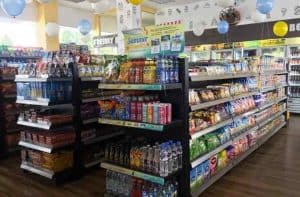 As in restaurants and other food businesses, some of the food products in a convenience store expire after a certain period, even if they are kept in cold fridges. Unless you’re a world expert in stock management and you’re sales are amazing – this problem will always create some inventory losses. It’s part of business, which just needs to be controlled.
As in restaurants and other food businesses, some of the food products in a convenience store expire after a certain period, even if they are kept in cold fridges. Unless you’re a world expert in stock management and you’re sales are amazing – this problem will always create some inventory losses. It’s part of business, which just needs to be controlled.
Now that we’ve discussed the basic pros and cons of owning a convenience store, let’s delve into the San Miguel Food Avenue Franchise and what it offers.
San Miguel Food Avenue Franchise: The Details
The San Mig Food Ave Franchise is part of San Miguel Food Inc. (SMFI), which is a unit of San Miguel Pure Foods Company Inc., one of the largest food companies in the Philippines. They are also just a part of a bigger giant, San Miguel Corporation (SMC), a multinational conglomerate holding company, with over 17,000 employees working in over 100 facilities throughout Asia. So, investing in a San Mig Food Ave Franchise means you get to be part of one of the most established companies in the country.
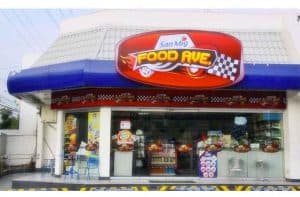 When SMC became involved in the fuel and oil business, and acquired Petron Corporation – all Petron Treats stores (mainly in Petron Gas stations) were converted into San Mig Food Ave stores. Today, the San Mig Food Avenue Franchise continues to expand, and not just in Petron Gas stations. They are also opening stand-alone stores in good commercial areas with high traffic.
When SMC became involved in the fuel and oil business, and acquired Petron Corporation – all Petron Treats stores (mainly in Petron Gas stations) were converted into San Mig Food Ave stores. Today, the San Mig Food Avenue Franchise continues to expand, and not just in Petron Gas stations. They are also opening stand-alone stores in good commercial areas with high traffic.
What Products Are Offered at The San Miguel Convenience Store
Food: Ready-to-eat products, Beverages, Snacks, Chips, Biscuits, Bread, Ice cream and more.
Non-food: Toiletries, Batteries, Cigarettes and Lighters, Magazines, Newspapers and more.
What Does the San Mig Food Ave Franchise Include?
Well, you of course get to use the extremely established brand name of San Miguel Food Avenue. Together with that you’ll get the Operational manual, Training for you and your staff, Marketing and Promotional support, Initial stock, Assistance with the pre-opening and Grand-opening, as well as continuous support and guiding throughout the journey.
Qualified applicants are guided and supported by SMFI to maximize their store’s profitability.
Franchising with a company like SMFI, which has a proven track record in supporting its franchisees ensures that you get all the training you and your team needs. It takes a lot of time-consuming chores off your hands and lets you focus on things like good management of staff, marketing and ensuring excellent customer service.
How Much Does the San Mig Food Ave Franchise Cost?
Well, the Franchise Fee is set to P100,000 (exclusive of VAT), while the total investment or Franchise cost is estimated at between P1.5M to P2.5M, depending on the size of the store.
What’s the expected ROI? According to SMFI – the payback period is approximately 24 months.
If you’re serious about buying a San Mig Food Ave Franchise – we suggest contacting SMFI directly to get the small gritty details.
San Mig Food Ave Contact Details
Office Address: JMT Corporate Condominium ADB Avenue, Ortigas Center, Pasig City, Philippines
Phone: +63 2 702 5826
Mobile: +63 917 567 1445
Email: nmangrobang@smg.sanmiguel.comp.ph
Website: www.sanmiguelpurefoods.com

